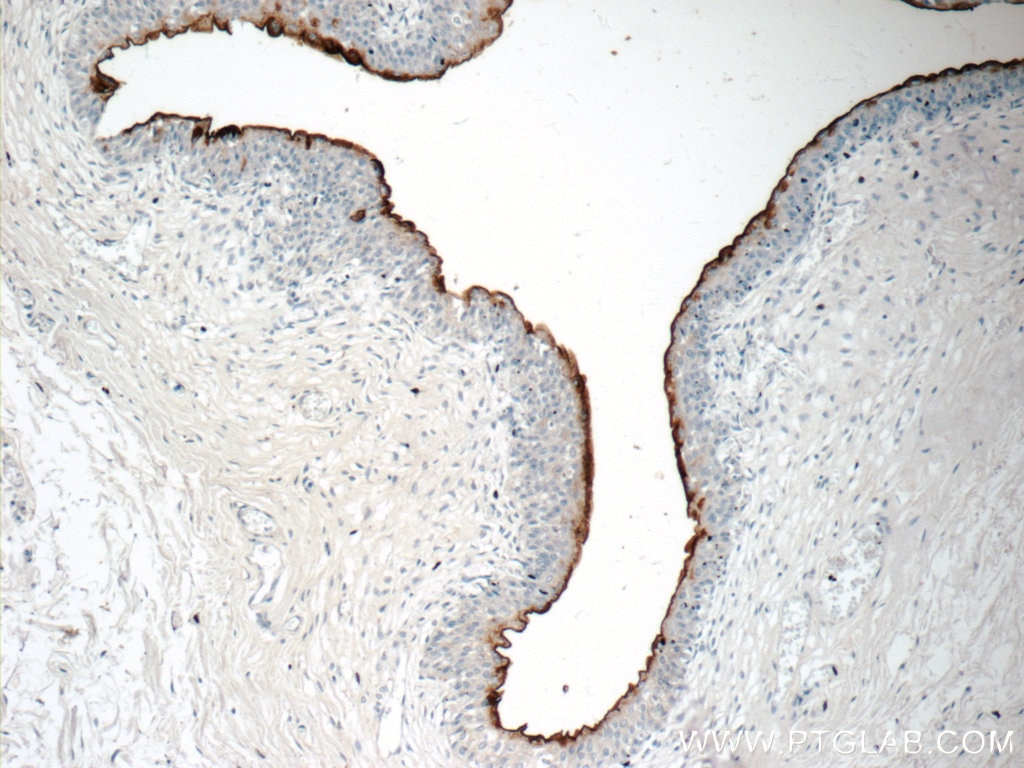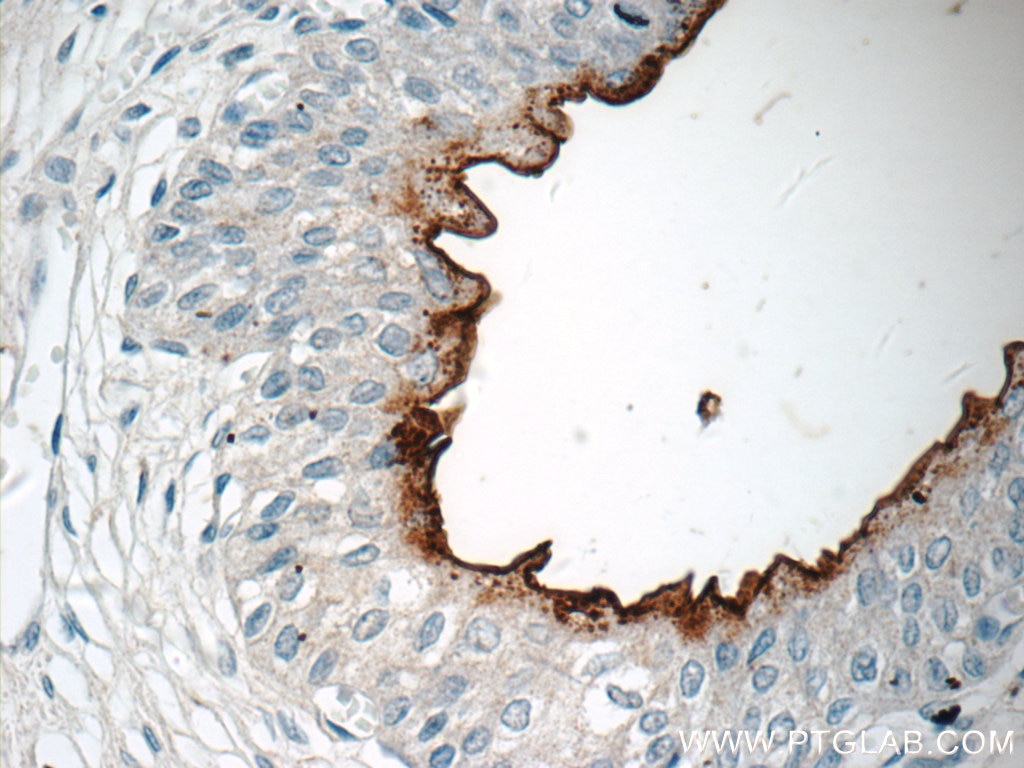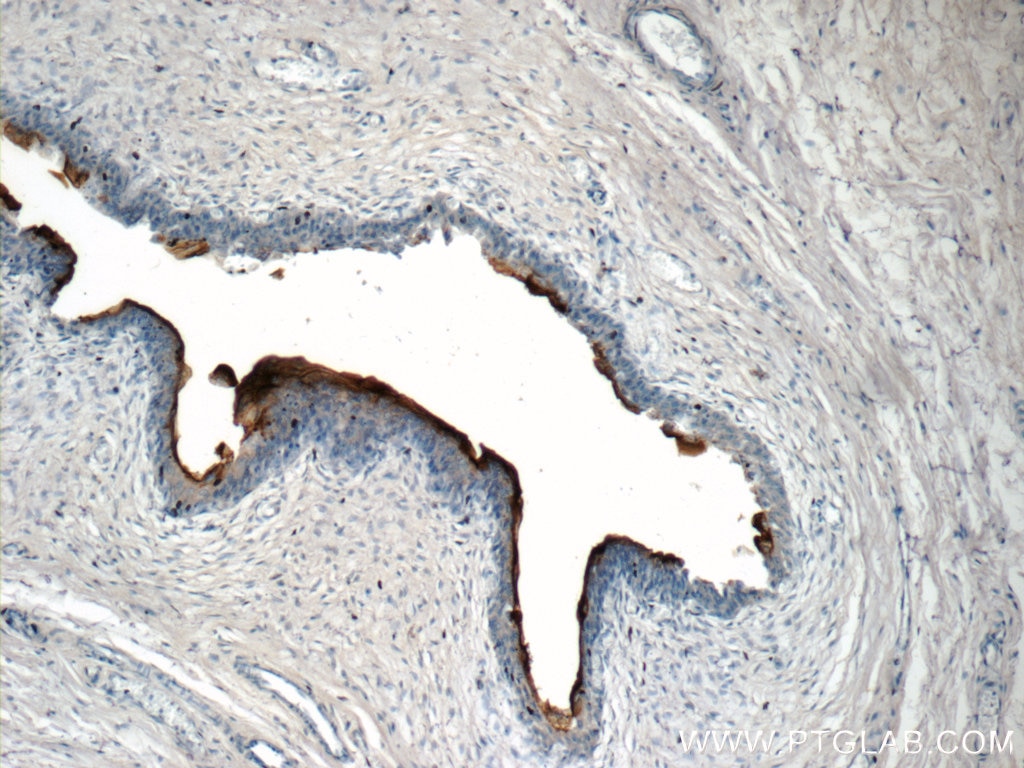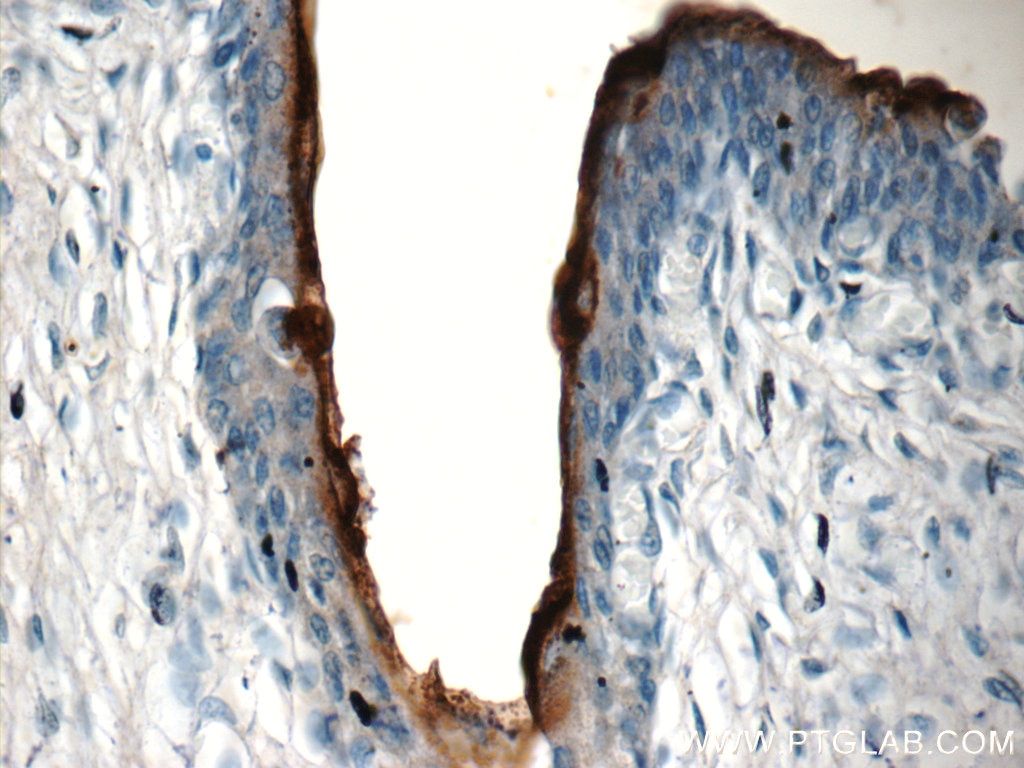UPK2-Specific Polyclonal antibody
UPK2-Specific Polyclonal Antibody for IHC, ELISA
Host / Isotype
Rabbit / IgG
Reactivity
human
Applications
IHC, ELISA
Conjugate
Unconjugated
Cat no : 19733-1-AP
Synonyms
Validation Data Gallery
Tested Applications
| Positive IHC detected in | human bladder tissue Note: suggested antigen retrieval with TE buffer pH 9.0; (*) Alternatively, antigen retrieval may be performed with citrate buffer pH 6.0 |
Recommended dilution
| Application | Dilution |
|---|---|
| Immunohistochemistry (IHC) | IHC : 1:20-1:200 |
| It is recommended that this reagent should be titrated in each testing system to obtain optimal results. | |
| Sample-dependent, Check data in validation data gallery. | |
Product Information
19733-1-AP targets UPK2-Specific in IHC, ELISA applications and shows reactivity with human samples.
| Tested Reactivity | human |
| Host / Isotype | Rabbit / IgG |
| Class | Polyclonal |
| Type | Antibody |
| Immunogen | Peptide 相同性解析による交差性が予測される生物種 |
| Full Name | uroplakin 2 |
| Calculated molecular weight | 19 kDa |
| GenBank accession number | NM_006760 |
| Gene symbol | UPK2 |
| Gene ID (NCBI) | 7379 |
| RRID | AB_2878602 |
| Conjugate | Unconjugated |
| Form | Liquid |
| Purification Method | Antigen affinity purification |
| Storage Buffer | PBS with 0.02% sodium azide and 50% glycerol pH 7.3. |
| Storage Conditions | Store at -20°C. Stable for one year after shipment. Aliquoting is unnecessary for -20oC storage. |
Background Information
Uroplakins are a group of urothelial differentiation-related membrane proteins. They are components of the asymmetric unit membrane (AUM), which forms the apical plaques of mammalian urothelium and is believed to play a role in strengthening the urothelial apical surface thus preventing the cells from rupturing during bladder distention (PMID: 8175808). Uroplakin-2 (UPK2) is a single-pass type I membrane protein. UPK2 may play an important role in regulating the assembly of the AUM.
Protocols
| Product Specific Protocols | |
|---|---|
| IHC protocol for UPK2-Specific antibody 19733-1-AP | Download protocol |
| Standard Protocols | |
|---|---|
| Click here to view our Standard Protocols |





